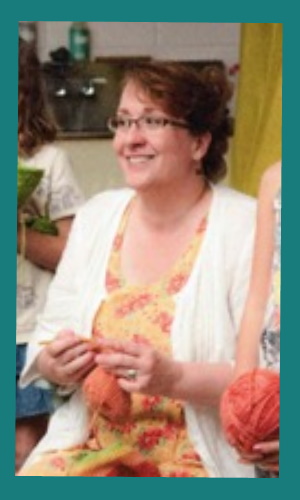Your Teacher
About Me
I was born a teacher. I just didn’t know it then. My work as a vet tech, as a Nature Guide in Louisiana, as a curatorial assistant at the Academy of Natural Sciences of Philadelphia, as a single parent of young twins – all of these I brought to my work as a subject and Handwork teacher at the River Valley Waldorf School in Upper Black Eddy, Pennsylvania.
And my sixteen years as a Waldorf Handwork teacher there allowed me to learn and perfect my approach to teaching. To be able to use my imagery and story-based teaching with patience, guidance and support is something for which I am extremely grateful. And I have learned that learning in this way does not have to be serious or overwhelming. It can be fun, engaging and even joyous. I now look forward to sharing those hard-earned lessons with students around the country.
This is why I started Head, Heart & Handwork and why I hope to number you and your child among the many who have had the opportunity to experience all of this first hand.

What is Unique about my Teaching Approach?
While one can experience crafting and learn a skill at a workshop or summer camp, it is a vastly different experience when a teacher with a deep understanding of the subject creates an environment where she sneaks the good stuff into the fun. Or you could say, I teach life lessons in the process all while the students are learning and having fun.
One of the most important lessons I teach is the value of finishing the project. It instills a sense of pride and confidence and your child is then enthusiastic to try the next challenge. Over time a sense of, “I can figure out what I don’t know how to do”, becomes a part of their belief about themselves.
In the caring atmosphere of a small class, where the teacher knows your child, the pace is determined by your child’s needs. It is low stress, designed to be fun and interesting, so they want to work on their project and rise to the challenge of learning a new skill.
When learning a new skill some students get frustrated and declare, “I can’t do this!”. I reframe the experience with, “It sounds like you are frustrated. Why don’t you say instead, “This is hard and I need help”. Over time they learn that while learning something new is hard, that by asking for help they can figure it out. This helps them to experience perseverance and to never give up.
Many people learn to dread making mistakes while growing up. I teach that struggling a bit and making mistakes are a normal part of the learning process and no big deal. We learn from mistakes by asking, “What can I do to fix this?”.
I might tell about the Japanese potters who practice the art of Kintsugi, the Japanese art of fixing imperfections in a pot by using gold to mend the flaw. This way they are embracing the imperfection and making it a thing of beauty rather than just a mistake. And the repair is illuminated rather than hidden.
